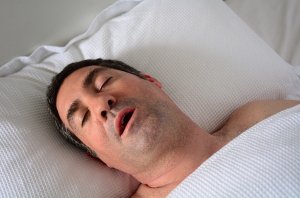The Hidden Dangers of Sleep Apnea

Linked to a number of troubling health issues, obstructive sleep apnea (OSA) doesn't just promote sleepless nights and groggy days. If you've been struggling with this serious disorder, learn how sleep apnea dangers could put your life at risk.
What Is Sleep Apnea?
A relatively common disorder, sleep apnea promotes breathing disruptions, which last from a few seconds to minutes during sleep. Afterword, breathing begins again, often with a loud choking or snorting sound. Many times, people are awakened by their breathing disruptions; however, often they are not. This leads mean people to suffer unknowingly, which is especially worrisome, since sleep apnea can contribute to so many medical problems, including:
- Hypertension: Frequent waking can cause the body's hormones to boost blood pressure levels. At the same time, poor breathing can also result in low oxygen levels in the blood.
- Heart disease: A number of studies have linked sleep apnea with an increased risk for cardiac events.
- Type 2 diabetes: Up to 80 percent of diabetics have sleep apnea, thanks in part to an increased risk of obesity.
- Obesity: Overweight people develop fatty deposits in the neck, which can obstruct breathing and cause sleep apnea. At the same time, poor sleep appears to result in increased levels of the hormone ghrelin, which can increase cravings and promote weight gain.
- Adult asthma: While not directly linked to sleep apnea, adult asthma may improve with sleep apnea treatment.
- Acid reflux: Many doctors say their patients report a reduction in acid reflux after sleep apnea treatment.
- Accidents: Sleep apnea promotes frequent waking and shallow sleep, which can increase the risk of car wrecks and injuries on the job.
Getting Help
According to the Centers for Disease Control and Prevention, insufficient sleep is a public health epidemic. With proper treatment, sleep apneics can escape the cycle of poor sleep and enjoy consistent restful nights.
The most common treatment for sleep apnea, continuous positive airway pressure (CPAP) utilizes mild air pressure to keep airways open during sleep. While once regarded as noisy and uncomfortable, modern CPAP units are for more comfortable and efficient. If you or someone you love might be suffering from sleep apnea, visit your doctor for an evaluation.





